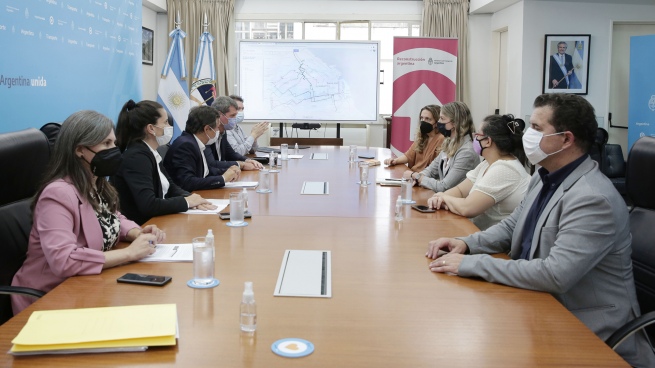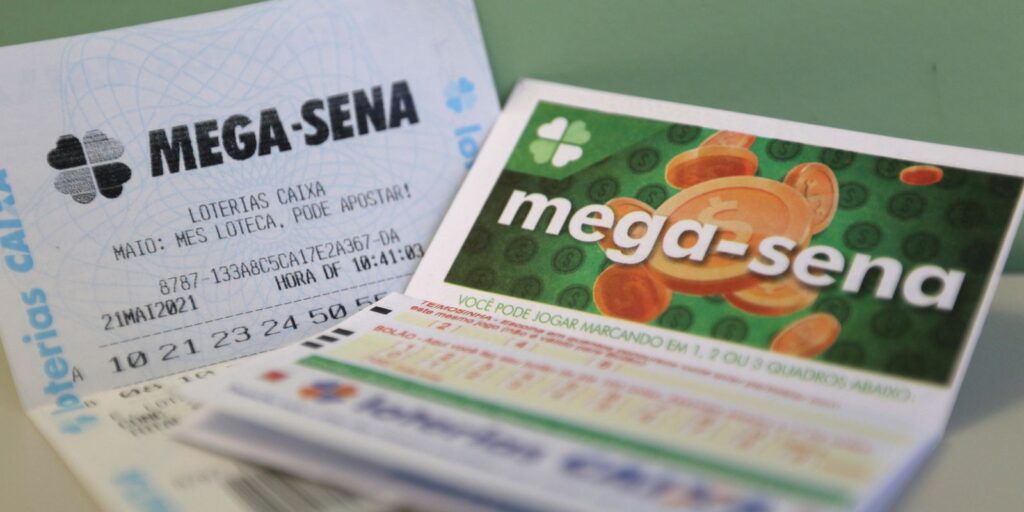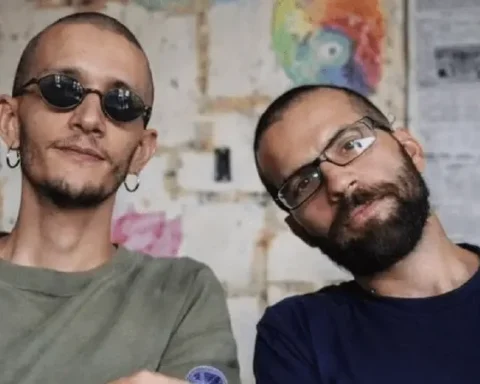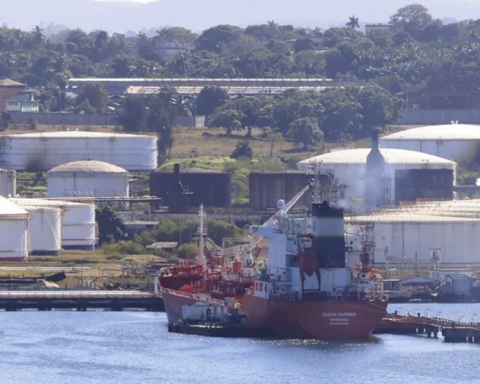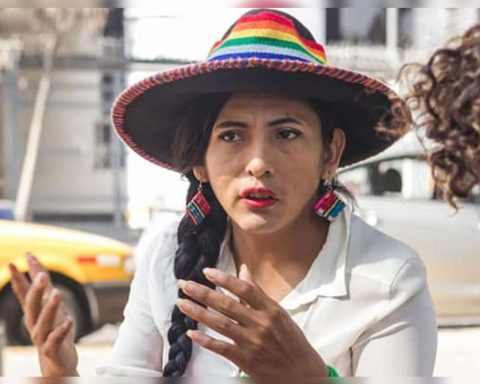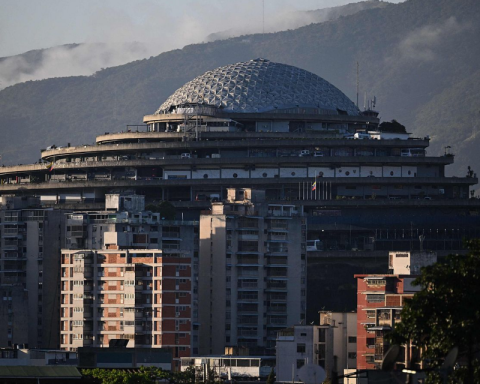The Ministry of Transport of the Nation and the Government of the Autonomous City of Buenos Aires (CABA) met this Thursday to outline the steps to follow so that the Buenos Aires administration takes charge of the bus lines that circulate through its territory, since that currently this jurisdiction is the only one in the country that does not make contributions to finance its own public transport, according to sources from the national portfolio.
During the meeting, those present discussed 4 axes of coordinated work to finalize the transfer of the port lines: legal, economic, institutional and theoretical.
During the meeting, they discussed 4 axes of coordinated work: legal, economic, theoretical and institutional aspects and, in the absence of initiatives from the Buenos Aires government, the Nation will advance in a draft agreement.
— Ministry of Transport (@MindeTransporte) February 25, 2022
The sources pointed out that, in this framework, and given the lack of proposals and contributions from the CABA for the maintenance of its transport system, Nación confirmed that it will prepare a draft agreement so that the Buenos Aires administration takes charge of its transport lines. collective.
At the end of the meeting, Diego Giuliano, Secretary of Transportation Management of the Nationexplained that they are “observing that the Government of the Autonomous Cityby Rodriguez Larreta, has been gradually withdrawing from the support of its own public passenger transport and today it puts zero pesos.
“This has happened from the year 2019 onwards, where it supported almost 81% of its transport and reached almost 44% in the year 2021. What we observe in these first two months of the year 2022 is that its collaboration for the transport of passengers is 0 (zero). Therefore, we are working so that this transfer is done in concert and that the CABA has the responsibility with respect to its own users, “he added.
According to the sources, in the last 4 years the contribution of the CABA government to its passenger car transport system has been decreasing to the detriment of the contributions made by the national government that systematically compensated for this withdrawal.
The Secretary of Transportation participated in the meeting. @DiegoGiulianothe undersecretaries @vittor_carlos, @moranmica and @LauraLabat and the directors @AlejandroStore2Salome Chirlo and @fsellares. Lucila Capelli and Natalia Neri attended by City.#Federal Transportation
— Ministry of Transport (@MindeTransporte) February 25, 2022
in 2019, the Buenos Aires automotive transport system was financed 81% with funds from the City and 19% from the Nation. A year later, in 2020, the Buenos Aires government contributed 51%, while its national counterpart almost tripled its contribution (49%).
in 2021the contribution proportion was inverted, with the national administration being the one that contributed the most to the financing of Buenos Aires transport with 56%, while the Buenos Aires administration contributed only 44%.
In this 2022the government of the City of Buenos Aires allocated zero pesos to finance the 32 bus lines that circulate through Buenos Aires territory, with the Ministry of Transportation absorbing 100% of the compensation that reaches the sum of 3,000 million pesos.
This situationthey pointed out, it is unfair to the rest of the 23 jurisdictions in the country that are in charge of the administration and financing of their own public transportation. Therefore, with the objective of correcting imbalances and in pursuit of a truly federal transportis that the Ministry of Transportation of the Nation established the scope of serious discussion so that the Buenos Aires Executive assumes the responsibilities that correspond to it on the subject.
meeting participants
Participating on behalf of the National Ministry of Transportation were Diego Giuliano (Secretary of Transportation Management), Laura Labat (Undersecretary of Automotive Transportation), Micaela Morán (Undersecretary of Planning and Coordination of Transportation), Carlos Vittor (Undersecretary of Economic and Financial Policy ), Alejandro Storello (Director of Automotive Passenger Transport), Salomé Chirdo (Director of Regulatory Regulation) and Francisco Sellares (Director of Transport Management).
On behalf of the Government of the Autonomous City of Buenos Aires, Lucila Capelli (Undersecretariat for Mobility Planning) and Natalia Neri (Collective Operations Manager) attended.
Current situation of the groups in CABA
The 32 lines that circulate exclusively through the City of Buenos Aires, make 780,000 daily trips that represent 33% of the trips that are made within CABA. Per month (approximately) they register almost 20 million trips.
In other words, 1 out of 3 trips in CABA are made by lines that would be transferred, the rest are made by the 103 lines that are interjurisdictional (AMBA-CABA) that are under the national orbit and will continue to be.
The 32 CABA lines are operated by 25 bus companies and involve the mobilization of 1,728 cars that travel (approximately) 302,300 kilometers per day.
